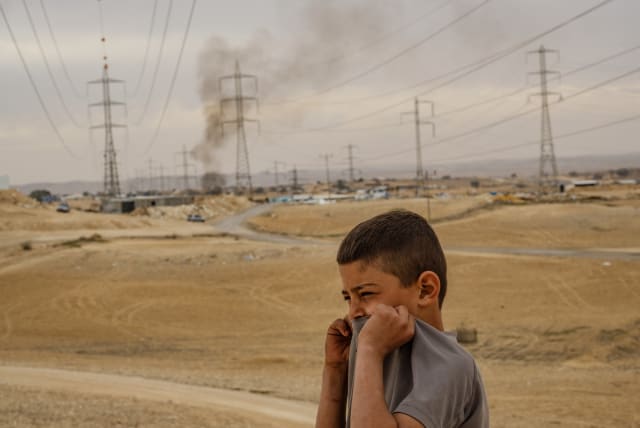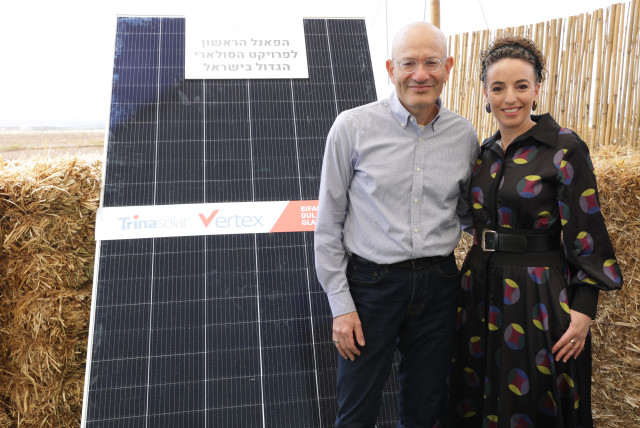What will Israel spend on the environment this year?

The ministry said it feels successful in that its total compensation stayed the same or even went up despite budget cuts to ministries across the board.
The Environmental Protection Ministry scored NIS 510 million over two years above its standard annual budget for special projects – around NIS 255m. additional a year – bringing its total budget to NIS 639m. for 2023, or NIS 210m. more than its basic budget in 2022.
In 2024, its budget will be NIS 650m.
The ministry said it feels successful about its compensation package given the budget cuts to ministries across the board. However, Tammy Gannot Rosenstreich, deputy executive director of Adam Teva V’Din, told The Jerusalem Post it is important to note for what this money will be used given the problematic place Israel stands regarding meeting its environmental protection goals.
“The Environmental Protection Ministry has a crucial role more than ever now, and the budget and the Arrangements Law do not reflect that,” Gannot Rosenstreich said. “What we see is a budget and an Arrangements Law that have a very strong lean toward development both from a budget standpoint and the standpoint of getting obstacles out of the way – obstacles that are real checks and balances that will help the environment and allow for better planning.”
Other ministries advance climate-harming plans
She said on closer look, the Energy and Finance ministries were given an easier way to move forward with fossil fuel energy production and national projects from power plants to desalination plants. But, simultaneously, the Climate Law, which the government promised to pass in the first six months of its term, is not moving forward.
“There is no agreement on the target” for lowering greenhouse gas emissions, Gannot Rosenstreich said. “Whenever environmental issues are addressed, they are addressed in soft language while support for development is unequivocal.
“While there is money for special projects, when you look at the basic budget for a ministry for whom challenges are getting tougher and tougher… it is a very outdated and unfortunate situation,” she said.
A report released this month said Israel would likely violate all of its obligations in the context of the United Nations Framework Convention on Climate Change if the government does not immediately change direction.
The budgets for 2023 and 2024 passed overnight Tuesday, with the government allocating NIS 484 billion for this year and NIS 514b. for next year.
The budget breakdown for specific projects
The Environmental Protection Ministry captured NIS 384m. for 2023 and NIS 395m. for 2024 for its basic budgets.
The NIS 510m. will be broken down into several special projects: Building the country’s climate resilience, transitioning to a net zero-emissions economy and improving urban sustainability; streamlining environmental licensing procedures; providing environmental educational content to the ultra-Orthodox community, including training teachers and study and enrichment tools; and supporting ecological restoration projects in various local and regional authorities.
Under these umbrellas, support for treating invasive species, such as fire ants and the Asian tiger mosquito, and programs specifically targeted at the periphery will also be included.
Moreover, the ministry received 46 new positions to carry out environmental licensing reforms, which it said will ultimately align with European environmental regulations.
Another 12 positions were noted, six for the benefit of waste treatment. It is still being determined how the other six will be used.
A spokesperson for the ministry highlighted that climate change and environmental protection, although core to the Environmental Protection Ministry, does not fall solely under its previews. For example, funds were also allocated for ecological improvements to the energy and agricultural ministries. So, more of the country’s money will benefit the environment.
“I am delighted and excited that the state budget passed,” Environmental Protection Minister Idit Silman said last week. “We will continue to work vigorously on behalf of our environment.”
Jerusalem Post Store
`; document.getElementById("linkPremium").innerHTML = cont; var divWithLink = document.getElementById("premium-link"); if (divWithLink !== null && divWithLink !== 'undefined') { divWithLink.style.border = "solid 1px #cb0f3e"; divWithLink.style.textAlign = "center"; divWithLink.style.marginBottom = "15px"; divWithLink.style.marginTop = "15px"; divWithLink.style.width = "100%"; divWithLink.style.backgroundColor = "#122952"; divWithLink.style.color = "#ffffff"; divWithLink.style.lineHeight = "1.5"; } } (function (v, i) { });

